

In case you’ve missed it, the Cayman Islands have been in the news lately, and not just because it’s swimsuit season. Much of it has to do with a certain presidential candidate’s personal finances, and this, in turn, has provoked some journalistic spade work into the schematics of the “offshore economy.” In fact, just as American factories and jobs have increasingly emigrated to other countries, so have the piggy banks where some of our super-rich and/or presidential candidates place their money. Adam Davidson, of NPR’s Planet Money fame, ran a suitably scary piece in last Sunday’s New York Times Magazine in which he sketched how easy it is for just about anyone with a telephone and photo ID to set up an offshore account.
It’s a great read that begins with Davidson Googling the names of a few firms that are well versed in parking your earnings in tax-free,
» Read more about: WebHot: You Too Can Be an Offshore Tax Shirker »


Social Security, Medicare and Medicaid are under attack by Republican lawmakers. Whether it is the Romney/Ryan budget that would end Medicare as we know it or proposals to privatize and cut Social Security, members of the Alliance for Retired Americans are pushing back and mobilizing with new “Let’s Not Be the Last Generation to Retire” campaign.
During the next few weeks to coincide with Medicare’s and Medicaid’s 47th anniversary July 30 and Social Security’s 77th on Aug. 14, Alliance members will sponsor educational briefings at senior centers and organize protests outside offices of lawmakers who have voted against the needs of local retirees. Says Alliance President Barbara Easterling:
Our goal is to educate seniors on the issues and on where elected officials and candidates stand. We need to clear up all the misinformation that is being spread by the big business groups and the right-wing commentators on TV.
» Read more about: Let’s Not Be the Last Generation to Retire »
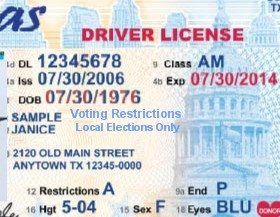
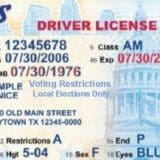
In the last two years, since the Republican sweep in the 2010 elections, GOP-controlled legislatures in many states have passed laws requiring photo identification for voters. It is widely believed that the unspoken intent of these laws is to suppress voting by groups known to be friendly to Democrats, such as African-Americans, Latinos, poor people, and young people. In a possible miscalculation, the Republicans also make it more difficult for seniors, a group that has recently trended more Republican.
Pennsylvania, has one of the toughest photo ID laws. A person must have a photo ID, such as a valid Pennsylvania driver’s license, a valid U.S. passport, or an ID issued by a Pennsylvania higher education institution or nursing home (with an expiration date). If the potential voter has none of these, s/he can obtain a state-issued card from the Department of Transportation. To do that, one must go to one of the agencies equipped to issue such cards,
» Read more about: Voter Suppression Laws: Green Cards for Citizens? »


 (Note: The following feature first appeared at Unionosity, a new local blog devoted to coverage of labor issues; we repost it with permission.)
(Note: The following feature first appeared at Unionosity, a new local blog devoted to coverage of labor issues; we repost it with permission.)
Negotiations between workers and the Waste Management company have reached an absolute standstill, with hundreds of trash and recycling workers striking and the sanitation giant refusing to negotiate with picketing workers.
Waste Management employees, represented by Teamsters Local 117, walked off the job last Wednesday after working without a contract since May 31. Waste Management is proposing a contract that pays recycling workers less than garbage haulers, despite the similarity between the jobs. Tellingly, Waste Management has historically taken an oppositional stance to organized labor, and seemed to be priming for a lock-out in June. After the contract expired, Waste Management held a job fair for replacement (scab) workers, and increased security at its Puget Sound headquarters. Alas,
» Read more about: Seattle Strike: Garbage In, No Garbage Out »


(Beginning tomorrow, August 1, health insurance companies will be required to cover women’s preventive care without extra charges. As other provisions of the Affordable Care Act (ACA) continue to unfold over the next few years, more women will gain further access to affordable preventive health care. Countdown to Coverage has been marking the days leading up to August 1 with posts about how ACA – often called “Obamacare” by its opponents — will benefit women, while pointedly rebranding the act “MamaCare.”
The following reposted feature was written by Rebecca Spence, of the American Pacific Islander American Health Forum, and Marissa Spalding, of Black Women’s Health Imperative.)
We love MamaCare! Thanks to the health care law, on August 1 all new health insurance plans will have to provide pregnant women with coverage for gestational diabetes screening without charging us expensive co-pays and deductibles.


There’s a scene in Lauren Greenfield’s likable documentary, The Queen of Versailles, in which the titular monarch, the wife of time-share mogul David Siegel, announces she is shoveling $2,000 worth of caviar into her mouth. “Somebody’s gonna get fired,” grumbles her husband, a former billionaire who is now desperately pinching pennies as his creditors tighten a noose around his troubled empire.
The film is full of such jarring moments, making it partly an American economic fable, partly a reality TV show. Like many such train wrecks, the story takes place in Florida and, like many a tale of real estate rise-and-ruin, it begins on the eve of the recent recession. That’s when Greenfield set out to capture the Siegels’ construction of the largest house in America – a 90,000-square-foot monstrosity inspired by both Louis XIV’s court at Versailles and the Paris Las Vegas hotel and casino. Among other things, its floor plans called for 23 bathrooms,
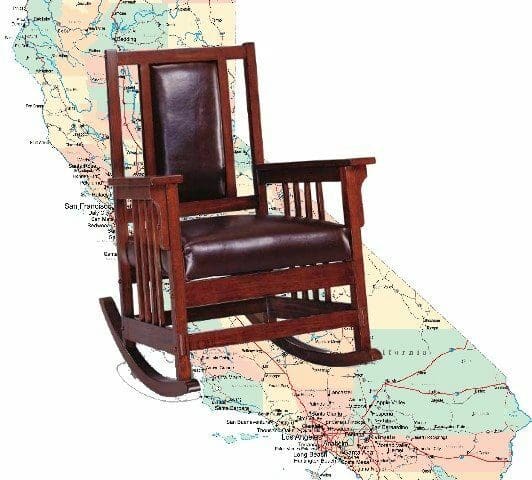
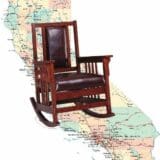
 In the past decade the number of California workers with access to a retirement plan at work has plummeted. A recent study by The New School’s Schwartz Center for Economic Policy Analysis (SCEPA) shows that in 2009, 52.3 percent of California’s workers did not have access to an employer-provided retirement plan—representing a 6.5 percent rise over the previous decade in workers without pension access.
In the past decade the number of California workers with access to a retirement plan at work has plummeted. A recent study by The New School’s Schwartz Center for Economic Policy Analysis (SCEPA) shows that in 2009, 52.3 percent of California’s workers did not have access to an employer-provided retirement plan—representing a 6.5 percent rise over the previous decade in workers without pension access.
This increase poses a danger to the broader economy, which will suffer the destabilizing effects of mass retirement insecurity. Legislators can address this looming crisis with a fair, low-cost solution: opening existing, well-managed retirement systems to private sector employees.
SCEPA’s new statistics underscore the need for the California state legislature to once again take action on legislation based on my proposal. Titled The California Retirement Savings Act, the bill was introduced by State Senator Kevin DeLeon and passed the state senate in February.


 (This post first appeared on California Progress Report and is reposted here with permission.)
(This post first appeared on California Progress Report and is reposted here with permission.)
This November, California voters will have an opportunity to vote on a simple, yet important ballot initiative called Proposition 37 – the California Right to Know Act. If approved, it would require food sold in California supermarkets be clearly labeled if it has been genetically engineered.
What many probably don’t yet know is there is no clearer David versus Goliath fight on this year’s ballot. On one side, is a truly grassroots people’s movement that generated over a million signatures in just 10 weeks, easily qualifying for the November ballot. On the other stands the largest anti-union, pro-pesticide, agrichemical interests in the world dedicated to saying and spending whatever it takes to hide the fact that some of our most important crops are being genetically engineered in a lab without our knowledge or consent.


As more American cities sink into the quicksand of bankruptcy, a veritable Scapegoats’ Olympics has been inaugurated – crowd-pleasing blame games that usually point fingers at workers. Harold Meyerson was having none of it the other day, however, in an L.A. Times op-ed:
“From reading the voluminous accounts of the fiscal woes of Stockton and San Bernardino, you’d think that municipal unions and feckless city officials are primarily what led these cities down the path to fiscal ruin.”
For evidence, Meyerson quotes editorials and columns appearing in the O.C. Register and Sacramento Bee, both of which confidently laid the blame on the pensions of unionized public employees. Of course, the unchallenged narrative among the chattering classes has been all about spineless city governments caving in to unions whose greedy members expect to enjoy a paid retirement when they’re too old to work.
» Read more about: WebHot: Don’t Blame Workers for Bankruptcies »
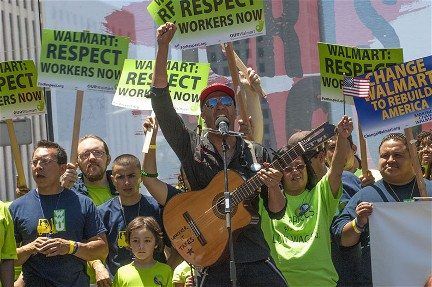

On June 30, I rode a bus from near the South Los Angeles site of Walmart to the Cornfield – the starting point for the largest rally ever held against the retail giant. It was on this bus packed with African American community activists that I came to fully understand why, as an African American pastor, I have for the last 10 years refused to shop at Walmart.
There has long been a debate in the community about whether low-income African Americans should shop at Walmart. Some people say that Walmart helps those who are struggling economically because they keep their prices low.
The truth is that Walmart is the leader at operating in its own best interest. And that interest – as we see with the enormous wealth of the Walton family – is to make as much money as possible.
There are several reasons why people who depend on the low prices and availability of Walmart should stop shopping there.
» Read more about: Walmart: Any Job Is Not Always a Good Job »


Richard Kirsch has dedicated his life to fighting for universal affordable healthcare. A senior fellow at the Roosevelt Institute and author of numerous studies on healthcare reform, Kirsch wrote New York’s Managed Care Consumer Bill of Rights. Perhaps most notable, however, is the role he played in transforming the recent political discourse with his revolutionary proposal: the public option.
In his new book, Fighting for Our Health: The Epic Battle to Make Health Care a Right in the United States, Kirsch describes the uphill struggle to bring health care to everyone. The book doubles as a memoir and ode to the power of progressive grassroots organizations. He chronicles the history of health care reform as well as his own experience designing and pushing forward the public option — a middle road between private insurance and single-payer coverage.
At a book party and fundraiser at the California Endowment,
» Read more about: The Man Behind America’s Health Care Reform »
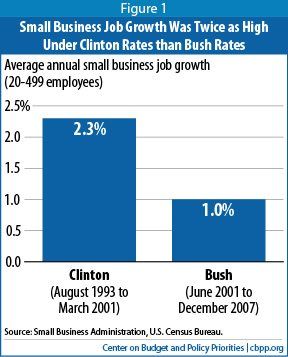
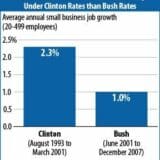
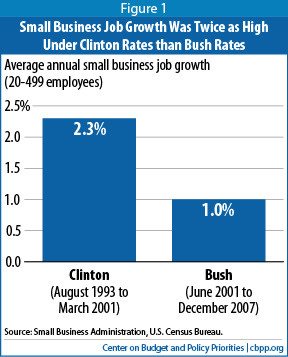 Republicans pride themselves of being the champions of small business owners. But it’s helpful to clarify what actually is their definition of a small business.
Republicans pride themselves of being the champions of small business owners. But it’s helpful to clarify what actually is their definition of a small business.
The Center on Budget and Policy Priorities (CBPP) released a report that shows only 2.5 percent of small business owners would be affected by allowing the Bush tax cuts to expire on the wealthiest taxpayers (top two marginal tax rates).
CBPP writes:
“The claims that allowing the Bush tax cuts for high-income people to expire would seriously harm small businesses rest on an exceedingly broad, and misleading, definition of ‘small business.’ The definition is so broad, in fact, that under it, both President Obama and Governor Romney would count as small business owners—as would 237 of the nation’s 400 wealthiest people.”
Did you catch that? The definition is so broad 237 of the nation’s 400 wealthiest people are considered small business owners.
» Read more about: Ending Bush Tax Cuts Would Affect Few Small Businesses »


 On Tuesday, July 24, the L.A. City Council voted unanimously to ban all medical marijuana dispensaries within the city. As the Los Angeles Times explains, this is the “latest attempt to regulate what many say is an out-of-control proliferation” of the pot shops.
On Tuesday, July 24, the L.A. City Council voted unanimously to ban all medical marijuana dispensaries within the city. As the Los Angeles Times explains, this is the “latest attempt to regulate what many say is an out-of-control proliferation” of the pot shops.
I am one of those who say that. Dispensaries are out of control. I am also one of those who think that the council got today’s vote totally wrong.
When the city set up its initial, partial regulatory system years ago, many dispensaries followed the city’s and the state’s rules about when and where they could operate. They worked with doctors and fully vetted their patients. They lab-tested their medicine. They submitted taxes to the city. They took over vacant storefronts. They became good employers and good neighbors.
Other dispensaries, however, skirted the rules. These dispensaries opened in a mad dash.


Just mentioning the Citizens United case is enough to boil some folks’ blood. Citizens United v. Federal Election Commission, No. 08-205 (U.S. Jan. 21, 2010) to use its full name, was the 5-4 U.S. Supreme Court decision that held that corporations and unions have the same political speech rights as individuals under the First Amendment.
The decision, equating campaign money with speech, opened the floodgates for, as some have put it, turning elections into auctions.
But, although a lot of us know something about the decision, mostly focused on its consequences, not enough of us know enough about the case itself—and some of the truly devious people behind it—and we should know.
But before we can begin connecting the dots, we need to identify the dots.
First Dot: Citizens United
The group is a conservative lobbying and propaganda shop located in Washington,
» Read more about: Proposition 32 Group Was Behind Citizens United »


 (The following post is an abbreviated version of a longer feature that appears behind a subscription wall on The Nation‘s site. The full post can be read here with the author’s permission.)
(The following post is an abbreviated version of a longer feature that appears behind a subscription wall on The Nation‘s site. The full post can be read here with the author’s permission.)
There’s nothing all that remarkable about Rustin High School in West Chester, Pennsylvania—except that it is named for a gay black man who was a pacifist and a socialist. Even more amazing is that it was a Republican-dominated school board, in a conservative district that’s 89 percent white, that voted in 2002 to name the new school after Bayard Rustin, who grew up in West Chester.
Rustin helped catalyze the civil rights movement with courageous acts of resistance. In 1947 he led the first Freedom Rides and wound up serving 30 days on a chain gang, one of many times he was arrested for civil disobedience. He was the chief behind-the-scenes organizer of the 1963 March on Washington.
» Read more about: Today's Leaders of Change Are Tomorrow's Heroes »

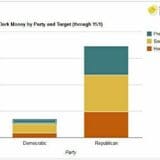
My wife and I saw the new Batman film this weekend. We’re not blockbuster fans but occasionally enjoy a bit of escapism. An escape from reality, of course, is what the moviegoers in Aurora, Colorado were looking forward to last Friday midnight before a gunman suddenly began firing into the audience. The reported initial reaction of some of the filmgoers was chillingly revealing – they thought the shots were part of the show. That hope immediately vanished, but it served as a mad metaphor for a society that increasingly has trouble distinguishing where fantasy ends and real life begins. For people in Aurora last week, escapism meant fleeing a movie, not attending one.
America, shocked as it was by the carnage, didn’t seem particularly enthusiastic to search for causes or lessons, let alone metaphors. So the ensuing discussions, in the mainstream media, at least, were mild compared to those that followed disasters from Hurricane Katrina onward.
» Read more about: The Aurora Shooting: Life Imitates Death »


You need a new pair of jeans. You’re standing in front of two stores, both offering excellent quality jeans. One store offers them for $35; these jeans are made offshore somewhere, and the retailer is based in a distant state. The other store offers a virtually identical pair for $38; these jeans are made right here in L.A., and the retailer is also based in L.A. What do you do?
Trick question — it doesn’t matter. You’re an individual consumer, overwhelmingly concerned with your own pocketbook.
But what if you’re the government, and you’re concerned not only with getting the best price, but also with trying to create jobs and generate more money for the local economy? Then it gets a bit trickier. Which is to say, we’re going to have to do some math here, folks: Just how much is that extra $3 getting us?
» Read more about: Government Procurement: Pennywise, Pound Foolish »
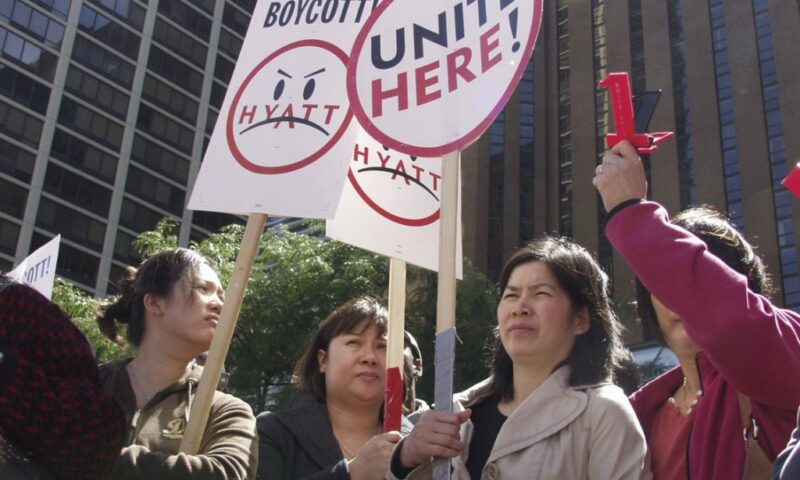

Today a global boycott of Hyatt Hotels was declared. As a server at the Hyatt Andaz in West Hollywood, not only do I personally condone it, but I also urge all my friends, family and online contacts to join me in voting Hyatt the worst hotel employer in America.
This is the first time in history that there has ever been a global boycott of a hotel chain, and I believe it is well deserved.
My personal journey to this decision started last September during our seven-day strike in front of the Andaz on Sunset Boulevard, where my coworkers and I were in a battle for decent wages and a fair tipping policy. A lot of us frankly were tired of working three or four different jobs while only getting paid for one.
I hadn’t yet heard of some of the stories from different Hyatt hotels across the country – like the one about Hyatt firing its entire housekeeping staff in Boston and replacing them with minimum-wage temp workers.
» Read more about: Hyatt Worker: Why I Support the Global Hyatt Boycott »


The voices of doom and decline say that high-speed rail cannot be built in California. They’ve tried to stop the forces of progress by calling high-speed rail “a boondoggle” and “a waste.” This is not a new phenomenon. Enemies of progress said the same thing about the Golden Gate Bridge, built in the middle of the Great Depression. They screamed “boondoggle” at every major public works project in the 20th century while California was constructing a world-class infrastructure of freeways, dams, bridges and aqueducts that fostered a golden age of middle-class growth.
The labor movement rejects the voices of doom, because we have a vision for California. We know it’s time to invest in California’s future, starting with construction of high-speed rail.
Wednesday, the voices of progress and investment won a significant victory — Governor Brown signed SB 1029 to fund construction of a high-speed rail system.